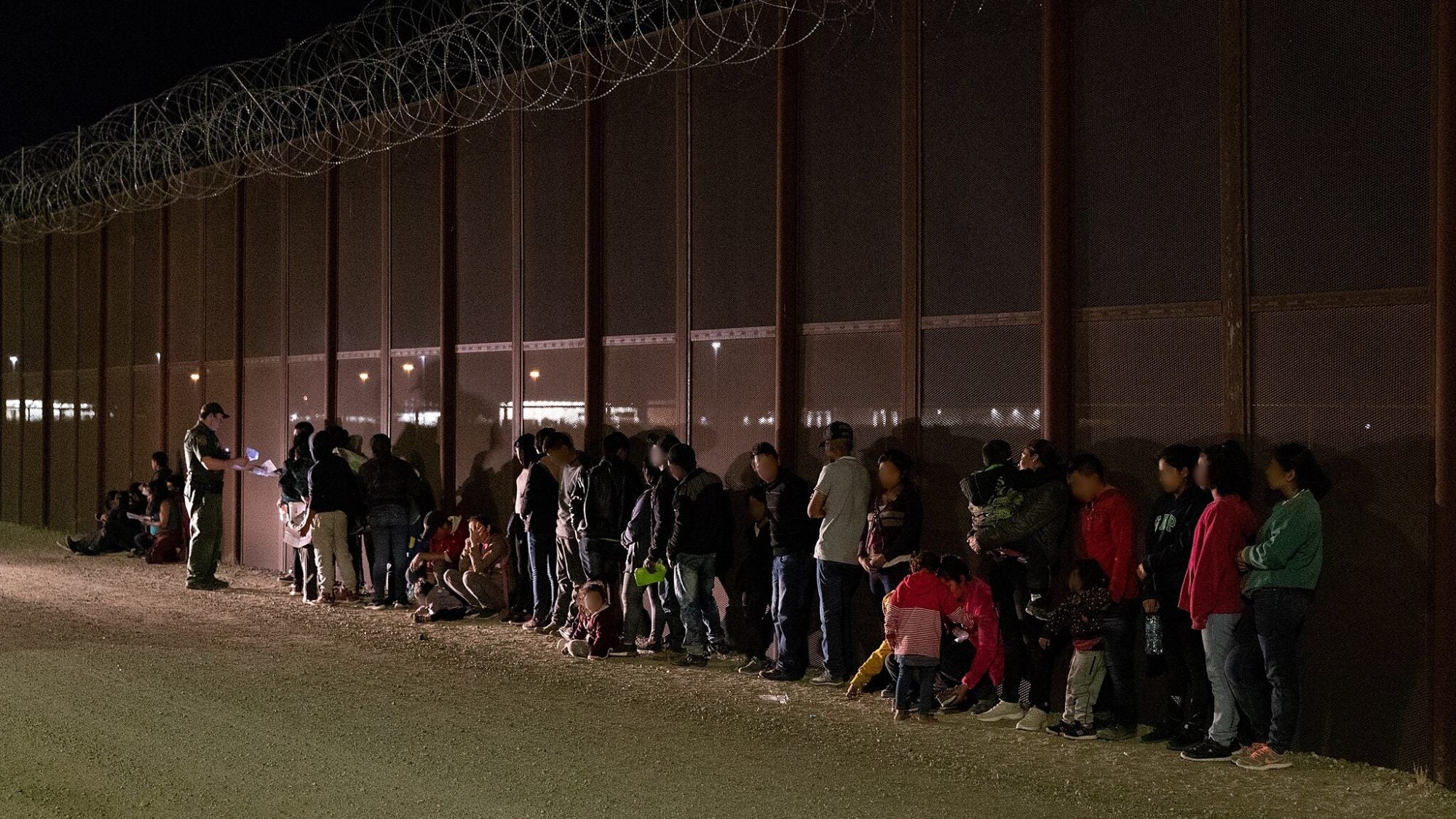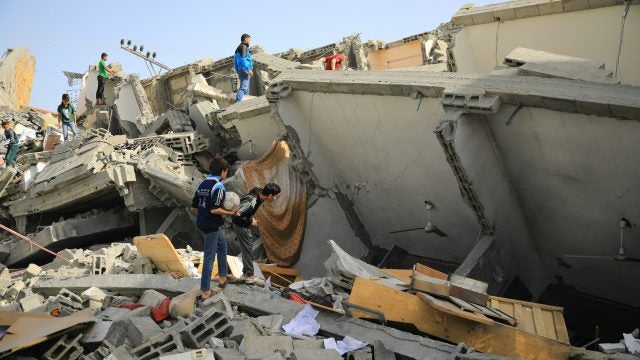
Title: Gendered Consequences of U.S. Mass Deportations: How Shifting Migration Policies Endanger Women and Girls
Migration is an inherently gendered process. Women and girls face disproportionate risks of gender-based violence (GBV) due to systemic gender inequality and discrimination that persists throughout the migration process. These risks are heightened in times of crisis, including the current wave of mass deportations in the United States. This article contends that increased rates of GBV, both domestically and internationally, must be anticipated as migrant women and girls are forcibly detained and compelled to “reverse migrate” to dangerous environments.
Introduction
Women constitute half the world’s 281 million migrants and 19.6 million refugees. In Central America alone, women and girls accounted for approximately 49 percent of the 16.2 million migrants in 2020. On the surface, women migrate for many of the same reasons as men—fleeing conflict, escaping natural disasters, or seeking education and economic opportunities. However, gender-specific factors often play a critical role in their decision to migrate. Inequitable legal systems, patriarchal social norms, and conservative religious ideologies create hostile environments that seek refuge in societies perceived as more just. These same systems marginalize women and increase their vulnerability to gender-based violence (GBV).
The full consequences of the current administration’s mass deportation campaign are still unfolding. Yet, alarming images of migrants handcuffed in human chains, detained in hotels with “help us” signs taped to windows, and held in military compounds or prisons without medical care expose the program’s blatant disregard for due process and human rights. Public deportation raids further dehumanize migrants, branding them as “illegal criminals.”
This approach disproportionately harms women and girl migrants—especially those at the intersection of multiple marginalized identities, including women of color, Black and Indigenous women, and women with disabilities. The situation is compounded by the Trump Administration’s rollback of international aid programs for GBV survivors and domestic refugee support services. As legal pathways close and support systems vanish, women are pushed toward more dangerous migration routes and left without critical GBV response services.
This article explores the intersection of gender and migration. Gender is understood as a social construct that confers power and privileges unevenly—primarily benefiting men while disadvantaging women and children. The analysis focuses on migration routes across South and Central America, Mexico, and the southern border of the United States. It begins by examining the structural inequalities that force women to leave their homes and the heightened risk of GBV they face throughout their journeys. The discussion then turns to how mass deportation policies further exacerbate these risks. The article concludes with a call for humane immigration policies and emphasizes the urgent responsibility of the U.S. government to prevent violence against migrant women and girls.
GBV and Migrant Women
Gender-based violence serves not only as a catalyst for migration but also as a persistent threat throughout the migration journey. Defined as any harmful act committed against a person’s will and based on socially ascribed gender differences, GBV includes physical, sexual, and psychological harm, coercion, threats, and other deprivations of liberty. Globally, an estimated one in three women has experienced intimate partner violence in her lifetime. For migrant women—particularly those belonging to other vulnerable groups—this risk is even more pronounced due to the additional layers of insecurity encountered during displacement.
The dangers are starkly visible along key migration corridors. Along the Panama-Colombia border, for example, at least one in four migrant women reports having experienced harassment or abuse. Across the broader migration route from South America through Central America and Mexico, at least two in five women have witnessed or endured some form of GBV. One of the most perilous segments of this journey is the Darién Gap, a remote and lawless stretch of jungle that has become synonymous with violence and exploitation. Recent estimates suggest that 20 percent of women and girls crossing the Darién Gap are survivors of GBV. Alarmingly, less than 40 percent of GBV response service providers are accessible—defined as being located within a one-kilometer radius—making it potentially more dangerous and costly for survivors to seek help than to continue onward through the Darién jungle.
The root causes of GBV in migration contexts are complex. Still, one of the most consistent factors is the significant power imbalance between migrant women and those in positions of authority or control along the route. Threats of violence toward family members or the risk of forced detention are commonly used to manipulate and exploit women, particularly those lacking legal documentation. In many instances, essential resources such as food are withheld unless women offer sex in exchange. These coercive and illegal practices are not limited to smugglers or traffickers—they are also carried out by national militaries, border patrol agents, and police forces.
Although these dangers are well documented, protections for migrant women remain limited. The United States does offer some legal pathways for survivors through the T and U Nonimmigrant Status visas, designed for victims of trafficking and certain qualifying crimes, including domestic violence and sexual assault. However, access to asylum based on gender-based harm has been fraught with legal and political challenges. Gains made in recognizing gender violence as a basis for asylum were largely dismantled during the first Trump administration, leaving many women without the protections they desperately need.
GBV and Mass Deportations
The existence of legal pathways for survivors of GBV stands in stark contrast to the current mass deportation policies, which significantly increase the risks faced by migrant women and girls. Research consistently shows that GBV intensifies when community safeguards are dismantled. ICE raids on previously protected spaces, including churches, schools, and sanctuary cities, along with the forcible separation of families, have eroded the protective structures within migrant communities. This breakdown disrupts access to critical, life-saving services such as specialized healthcare, legal protection, and mechanisms for reporting abuse.
The rise in deportation operations has also led to increased instances of “de facto” and “self-deportation,” where individuals, fearing arrest or detention, voluntarily leave the country. For many women and girls, this may appear to be the safer choice given the well-founded fears of sexual and physical violence in detention centers. However, return migration poses its own set of dangers. Those forced to retrace perilous routes—such as through the Darién Gap—or rely on unregulated and illicit channels face heightened vulnerability to exploitation and assault.
The aggressive enforcement of immigration laws further discourages GBV survivors from seeking legal residency. Without legal status, many are reluctant to report out of fear of deportation or retaliation. In the worst cases, this vulnerability is exploited by those in power. Survivors may be coerced into silence or subjected to continued abuse by traffickers, employers, or even officials.
Detention itself carries profound risks. Reports over recent years have uncovered patterns of systematic sexual assault in ICE facilities. In numerous cases, survivors have been deported before being able to testify in ongoing investigations, representing a clear violation of due process. Allegations have also emerged accusing ICE of deporting women who came forward about receiving unnecessary and invasive medical procedures, including forced hysterectomies, while in custody.
Policy Demands
The U.S. government must uphold international human rights law and take immediate steps to address abuses within its immigration system. This includes acknowledging the well-documented human rights violations in ICE detention centers and committing to thorough investigations and accountability measures. Detained migrants have the right to basic necessities, including safe water, nutritious food, and access to medical care.
Detention and deportation operations that violate due process must be halted. Every migrant is entitled to a full, fair, and impartial hearing, access to legal counsel, and a clear explanation of the charged brought against them. Legal proceedings must include the opportunity to present evidence, testify, and cross-examine witnesses. Migrants should also be provided with comprehensive information about their legal rights and the means to exercise them.
The Trump Administration must act with due diligence to investigate and address all forms of violence against migrant women and girls, including policies and practices that increase their risk of harm. Deportations to countries where women and girls face threats such as sexual violence, enforced disappearance, torture, or other human rights violations should be immediately suspended.
Support for migrant communities must also come from the ground up. Grassroots organizations, many of which are already doing essential work, should be resourced and empowered to expand community-level protections and services. These efforts include initiatives like “Know Your Rights” workshops, which provide critical legal knowledge and preparedness for interactions with immigration officials. Strengthening these networks is vital to building a more just and humane immigration system.
…
Rosa Celorio is the Burnett Family Associate Dean and Distinguished Lecturer for International Law at the George Washington University Law School. She has more than 20 years of experience working on women’s rights issues, including as a Senior Attorney for the Inter-American Commission on Human Rights and its Rapporteurship on the Rights of Women, the United Nations Development Fund for Women (now UN Women), and the United Nations Committee on the Elimination of Discrimination against Women. She teaches and writes frequently on issues of women’s rights, gender, human rights, and international law.
Dr. Mary Ellsberg is the Founding Director of the Global Women’s Institute at George Washington University. She has more than 40 years of experience in international research and programs on gender and development and is a leading expert on violence against women and girls globally, including in conflict and humanitarian settings.
Carolina Jiménez Sandoval is the President of the Washington Office on Latin America (WOLA). She holds over 20 years of experience in research and advocacy for human rights in the Americas and throughout the world. As a leader in the field with extensive experience in the region and Washington, she guides WOLA’s team to achieve strategic impact in social justice and human rights. Before WOLA, she served as Deputy Research Director for the Americas with Amnesty International in Mexico City.
Dr. Gabriella Nassif is a Senior Research Associate at the Global Women’s Institute at George Washington University. She is a feminist political economy expert with extensive experience working on issues related to gender, labor, and migration in the Middle East.
Image Credit: U.S. Customs and Border Protection, Public domain, via Wikimedia Commons
Recommended Articles

From the 1960s to the 1990s, the Danish government implemented the “Spiral Campaign,” a family planning policy that fitted four thousand and five hundred Inuit women and girls—many underage—with intrauterine…

This piece examines the UK government’s proscription of Palestine Action under the Terrorism Act, situating it within a broader trend of shrinking space for public dissent. It argues that the…

This article analyses the distortions of the International Humanitarian Law (IHL) notion of proportionality in the context of the Israel-Gaza war. It discusses Israel’s attempts to reinterpret proportionality to justify…